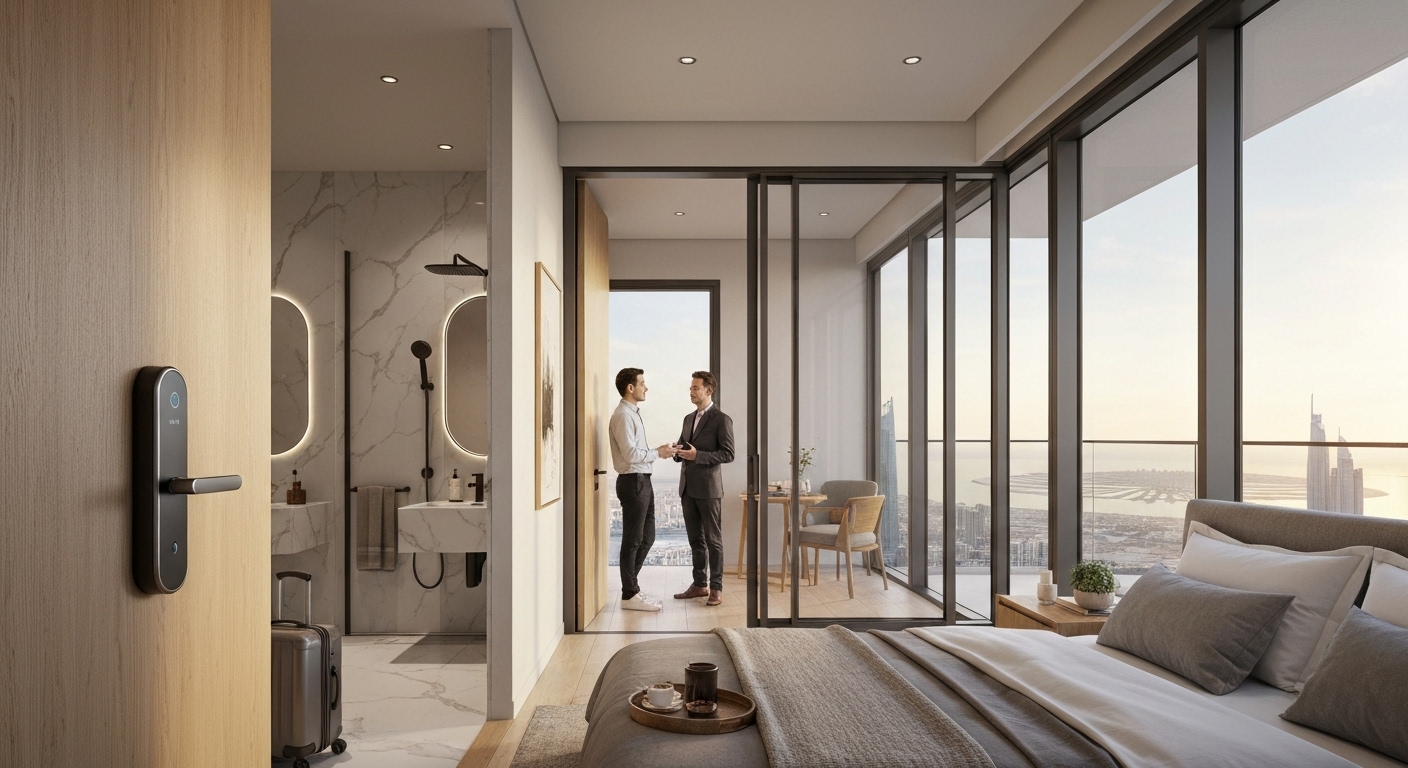Are you an owner or a long-term tenant wondering, “Can I legally rent out one room in my Dubai apartment?” The answer is layered. Dubai’s real estate market attracts investors seeking steady returns, and with the city’s rental demand, sharing arrangements become appealing. This article breaks down the exact steps, legal requirements, and practicalities of turning a spare room in your Dubai apartment into a compliant income stream.
Understanding Dubai’s Core Regulations for Room Rentals
Dubai’s real estate market is governed under clear regulations designed to protect both landlords and tenants. Broadly, the law favors transparency and security. Room rental and shared accommodation arrangements are subject to Dubai Land Department (DLD) and local municipality regulations. Notably, you cannot simply start renting out a room without ensuring your arrangement fits the definition of “sharing accommodation,” which is legally regulated.
The law differentiates between renting out an entire unit and subletting a part of it. Dubai’s Tenancy Law (Law No. 26 of 2007 as amended by Law No. 33 of 2008) states that tenants cannot sublease the unit—whether wholly or in part—without explicit written consent from the landlord. For owners, any rental must still comply with building rules, community association covenants, and DLD requirements. This means a property owner or tenant must receive written permission to lease a single room, and the agreement has to be officially documented.
Key Legal Requirements for Renting Out a Room in Your Dubai Apartment
To legally rent out one room in your Dubai apartment, you must follow a set of requirements:
1. Landlord or Owner Approval: Written consent is mandatory. If you are not the property owner (for example, a long-term tenant), the owner must approve the arrangement and provide documentation to support it. Any lease agreement otherwise is technically invalid.
2. Official Registration: The tenancy agreement—including subleasing of a room—must be registered with the Ejari system, Dubai’s official rental contract registration platform. Each tenant, including subtenants, should be properly registered to avoid future disputes or issues with the municipality.
3. Compliance With Building and Community Rules: Many apartment towers and master-planned communities in areas like Jumeirah Village Circle, Al Barsha, or Business Bay have their own policies on sharing accommodation. Always check with your building management to avoid surprise notices or fines.
4. DHA and Municipality Guidelines: Depending on the apartment’s use (residential or commercial), municipal health and safety standards may apply, including minimum space requirements per occupant.
5. Rental Income Declaration: If you earn income from renting a room, you are required to declare it appropriately for tax and compliance purposes. For UAE residents, this process is generally straightforward but should not be overlooked.
Example: Step-by-step Approval and Registration
1. Confirm Initial Approval: Ensure your property’s governing documents and landlord agreement permit subleasing.
2. Draft a Room Rental Agreement: Prepare a legally binding contract specifying the room, rent amount, security deposit (commonly AED 2,000–5,000), and shared facilities.
3. Register with Ejari: Visit an official Ejari center or use the online portal to submit the agreement and required IDs for all parties.
4. Notify Building Management: Submit the rental agreement for their records and gain any access permissions for the new tenant.
Navigating Landlord Approval and Tenant Consent for Subleasing
Securing landlord approval is the starting point for any successful and legal room rental arrangement. Without it, both the landlord and tenant risk penalties or contract termination. If you are a subtenant considering renting out part of your space, written approval is even more critical. In all cases, transparency protects your interests and ensures compliance.
Permits, Registrations, and Official Documentation: What You Need to Know
Proper documentation is key. The most important document is the Ejari certificate, which acts as legal proof of tenancy for both full and partial rentals. Keep copies of all written consents, the room rental contract, and building management letters for future reference.
Potential Risks and Penalties of Non-Compliance
Renting out a room in your Dubai apartment without following these steps exposes you to risk. Law enforcement or Dubai Municipality can impose fines, nullify tenancy contracts, or even order eviction. Unregistered tenants can face difficulties with legal residency documentation and municipal services. For landlords, non-compliance could lead to legal disputes or jeopardize your property’s reputation in high-demand neighborhoods.
Practical Considerations: Screening Tenants, Agreements, and Shared Space Management
Beyond legal steps, screening tenants is vital. Dubai’s diverse resident base means cultural, lifestyle, and security preferences vary. Draft a professional rental agreement outlining payment terms, deposit handling, and rules for shared facilities such as kitchens or parking.
Danube Properties’ Insights: Maximizing Your Investment Safely
Dubai continues to offer higher rental yields compared to many global markets. For example, renting a one-bedroom apartment in Dubai starts from AED 35,000 annually, with two-bedroom units fetching between AED 50,000 and AED 60,000 per year, often yielding 5–6% returns.
In summary, you can legally rent out one room in your Dubai apartment, but only if you secure written approvals, register the subtenancy with Ejari, and comply with all local and building regulations. As with any real estate investment, due diligence and compliance are key to maximizing returns and peace of mind. For more guidance, contact Danube Properties and safeguard your real estate strategy in Dubai’s evolving market.




